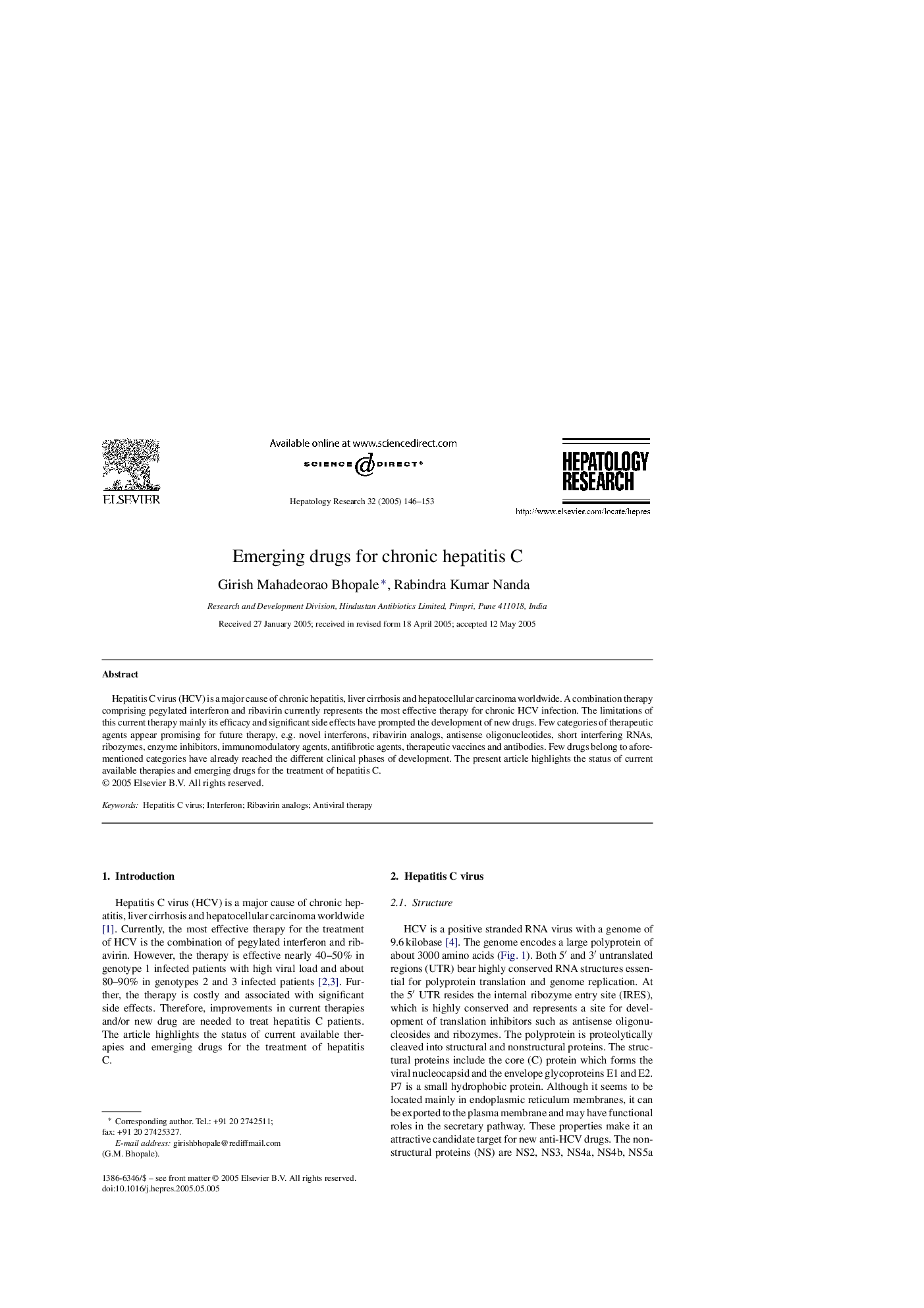| Article ID | Journal | Published Year | Pages | File Type |
|---|---|---|---|---|
| 9252847 | Hepatology Research | 2005 | 8 Pages |
Abstract
Hepatitis C virus (HCV) is a major cause of chronic hepatitis, liver cirrhosis and hepatocellular carcinoma worldwide. A combination therapy comprising pegylated interferon and ribavirin currently represents the most effective therapy for chronic HCV infection. The limitations of this current therapy mainly its efficacy and significant side effects have prompted the development of new drugs. Few categories of therapeutic agents appear promising for future therapy, e.g. novel interferons, ribavirin analogs, antisense oligonucleotides, short interfering RNAs, ribozymes, enzyme inhibitors, immunomodulatory agents, antifibrotic agents, therapeutic vaccines and antibodies. Few drugs belong to afore-mentioned categories have already reached the different clinical phases of development. The present article highlights the status of current available therapies and emerging drugs for the treatment of hepatitis C.
Related Topics
Health Sciences
Medicine and Dentistry
Gastroenterology
Authors
Girish Mahadeorao Bhopale, Rabindra Kumar Nanda,
